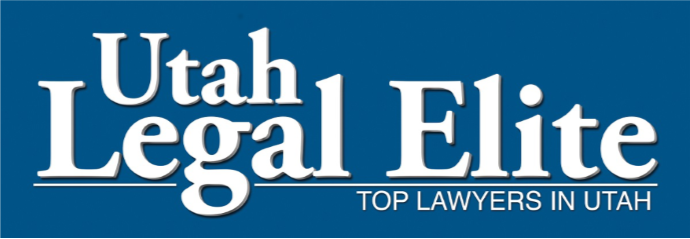Fideicomisos y herencias
FIDEICOMISOS Y HERENCIAS
ÁREA DE PRÁCTICA / UTAH TRUSTS & ESTATES ABOGADOS
Se alienta a las personas que estén preocupadas por una transferencia sin problemas de activos entre generaciones a que se comuniquen con un abogado de planificación patrimonial e impuestos. RBMN se especializa en la planificación para propietarios de empresas y personas con propiedades de tamaño mediano a muy grande, utilizando técnicas de planificación sofisticadas. Nuestros abogados de sucesiones tienen experiencia en planificación de impuestos sobre sucesiones y donaciones, preparación de fideicomisos y testamentos, representación de auditorías fiscales, procedimientos de sucesión, disputas patrimoniales y administración de sucesiones y fideicomisos.
FIDEICOMISO Y PATRIMONIOS
Nuestra práctica de derecho de planificación patrimonial provee servicio completo y emplea una gama completa de instrumentos legales integrales de planificación patrimonial en nombre de nuestros clientes, que incluyen:
- Testamentos
- Fideicomisos
- Tutela / curatela
- Directiva de atención médica de Utah (poder notarial médico / testamento vital)
- Fideicomisos de omisión de generación (GST)
- Fideicomisos para necesidades especiales
- Fideicomisos de dinastía
- Fideicomisos QTIP
- Fideicomisos caritativos restantes
- Fideicomisos en vida
- Fideicomisos otorgantes
- Fideicomisos de seguros de vida
- Planificación de su legado
En todos los asuntos de planificación patrimonial, nuestros abogados comprenden la importancia de dedicar tiempo a escuchar a nuestros clientes para evaluar sus objetivos y ayudarlos a establecer su legado. Tendremos en cuenta una amplia variedad de factores, incluyendo un inventario de todos los activos, la valoración comercial, sus necesidades mientras aún vive y sus intenciones específicas con respecto a los miembros individuales de la familia, incluyendo circunstancias especiales como:
- Hijastros y yernos o nueras
- Niños que tienen adicciones a las drogas o discapacidades
- Hijos que ya han recibido gran parte de lo que será o será su herencia futura
- Planificación de donaciones y caridad
ACTUALIZACIONES RECIENTES DE LA LEY DE FIDEICOMISOS Y PATRIMONIOS
FIDEICOMISOS Y ABOGADOS INMOBILIARIOS EN RICHARDS BRANDT EN SALT LAKE CITY, UTAH
ADMINISTRACIÓN DE FIDEICOMISOS / SUCESIONES
Asesoramos a individuos, representantes personales y fideicomisarios corporativos sobre cuestiones que surjan en la administración del fideicomiso y / o testamento. También ayudamos a los beneficiarios individuales a comprender sus derechos como beneficiarios de un testamento y / o fideicomiso. Nuestra práctica de administración de fideicomisos y sucesiones ayuda a representantes personales, individuos y bancos / fideicomisos con;
- Nombramiento de representante personal
- División y distribución de activos
- Valoración de activos
- Litigio de disputas
LITIGIOS DE FIDEICOMISOS Y SUCESIONES
En un mundo ideal, la planificación patrimonial y la voluntad permitiría a los fideicomisarios y representantes personales (ejecutores) llevar a cabo los deseos del difunto (incluyendo las transferencias de efectivo, bienes raíces e inversiones, así como planes de sucesión empresarial), sin embargo, eso no siempre es posible. Muchas personas incluyen intenciones caritativas cuando redactan testamentos y fideicomisos y transmiten activos específicos a cónyuges, hijos y otros amigos y familiares. La realidad es que las disputas a menudo surgen cuando los fideicomisarios, representantes personales, beneficiarios y herederos están en desacuerdo sobre la disposición de un patrimonio. No es raro que este tipo de situación se desarrolle cuando el segundo padre muere y surgen desacuerdos entre los hijos sobre el dinero y la propiedad que quedan. Una parte puede alegar que otra tuvo influencia indebida sobre el difunto o alegar que un fideicomisario o representante personal está abusando del poder o favoreciendo a otro beneficiario. Tenemos experiencia en estos asuntos y podemos ayudarlo a navegar en estas situaciones sensibles.
TUTELAS
Aquí en Richards Brandt, trabajamos con nuestros clientes en varios tipos de asuntos de tutela. Nuestros abogados asesoran a los clientes sobre la comprensión del proceso de tutela / curaduría. Nuestro proceso incluye el establecimiento de tutela y tutela para familiares y seres queridos que necesiten atención médica y financiera supervisada. Al combinar un equipo calificado de abogados, nuestros abogados evalúan el mejor enfoque legal para cada asunto de tutela. Asesoramos a los clientes en la defensa o seguimiento de asuntos de tutela con sensibilidad y profesionalismo.
PROTECCIÓN DE ACTIVOS
La práctica de la protección de activos implica preservar su patrimonio individual o los activos de su negocio minimizando el riesgo de que varios acreedores puedan encontrar y tomar sus activos ganados con tanto esfuerzo. Trabajamos con nuestros clientes para crear diferentes tipos de estrategias de preservación patrimonial basadas en sus necesidades, protegiéndolos a ellos, a sus familias y sus negocios de crisis financieras, juicios catastróficos y futuros acreedores. Sin la creación de la estrategia y las salvaguardias adecuadas, años de arduo trabajo y éxito pueden estar en riesgo. Nuestros abogados están comprometidos a proteger a nuestros clientes, ya sean empresas o particulares, de posibles crisis financieras.
SINDICATURA
Ya sea que un regulador gubernamental designe un administrador judicial, se selecciona un administrador judicial designado de forma privada o se designa a un administrador judicial designado; Tendrán la responsabilidad de custodia de cualquier propiedad, incluyendo los activos y derechos tangibles e intangibles. Si se le designa como administrador judicial, es posible que necesite un asesor legal que lo ayude a navegar por las leyes pertinentes y preparar documentos. Si alguien más es designado administrador judicial, especialmente cuando sus activos están en cuestión, debe reunirse con un abogado para comprender sus derechos y posibles reclamaciones. Por último, si necesita los servicios de un receptor experimentado, contáctenos para concertar una administración judicial que satisfaga sus necesidades. Hemos navegado con éxito situaciones de suspensión de pagos durante décadas.
CONSIDERACIONES FISCALES
Es posible que se apliquen consideraciones fiscales especiales para propiedades más grandes. Trabajar con un abogado experimentado es importante para que las personas y las parejas comprendan cómo trabajar dentro de la ley para garantizar que se conserve el mayor porcentaje posible del patrimonio para la familia, para un negocio en curso o para organizaciones benéficas designadas.
UNA GAMA COMPLETA DE CUESTIONES FISCALES
Los abogados de impuestos de Richards Brandt se encargan de la planificación fiscal para la creación de nuevas empresas y organizaciones sin fines de lucro, incluyendo organizaciones caritativas y religiosas. Representamos a clientes en controversias tributarias que involucran derechos de retención, incluyendo apelaciones, cobros, ofertas de compromiso, apelaciones de reconsideración de auditoría, así como estrategias de quiebra relacionadas con controversias tributarias.
Ayudamos en todas las áreas de impuestos y planificación fiscal, incluyendo problemas de impuestos sobre las ventas, problemas de impuestos a la propiedad, planificación fiscal para parejas del mismo sexo y consideraciones fiscales después del divorcio, la adopción, el matrimonio o el nacimiento de niños. Nuestros abogados pueden asesorarlo sobre una amplia gama de otras opciones de propiedad e impuestos comerciales y personales, como la tenencia conjunta.
CONTÁCTENOS PARA HABLAR SOBRE SUS NECESIDADES POR TELÉFONO O PARA PROGRAMAR UNA CONSULTA
Se anima a los propietarios de empresas y particulares del área de Salt Lake City a que llamen o envíen un correo electrónico a Richards Brandt para concertar una consulta con uno de nuestros abogados. Representamos a clientes en asuntos de planificación patrimonial e impuestos en todo el estado de Utah.
«La buena suerte es lo que sucede cuando la oportunidad se encuentra con la planificación».
-Thomas Alva Edison-
FREQUENTLY ASKED QUESTIONS (FAQS)
BUSINESS TRANSACTIONS & CORPORATE GOVERNANCE / FEATURED FAQS
P: ¿Es una LLC o una corporación adecuada para mi negocio?
Answered by:
A: To decide which entity is right for you, we look at: liability, taxation, and maintenance. Both corporations and LLC’s have limited personal liability—this means that owners are usually not responsible for business debts. However, corporations and LLC’s are taxed very differently—corporations are classified as a separate taxable entity, whereas LLC’s are typically taxed as a pass-through entity (unless you choose otherwise). And corporations and LLC’s have different levels of maintenance—LLC’s have fewer reporting requirements and can operate solely with members acting as the managers. Conversely, corporations are required to hold certain annual meetings, keep certain records, and appoint boards and officers to manage the company for the stockholders. Every situation is unique so we recommend that you consult with an attorney in making your decision. Contact our firm, Richards Brandt, if we can help you decide which entity is right for you.
P: ¿Es una LLC o una corporación adecuada para mi negocio?
Answered by:
A: To decide which entity is right for you, we look at: liability, taxation, and maintenance. Both corporations and LLC’s have limited personal liability—this means that owners are usually not responsible for business debts. However, corporations and LLC’s are taxed very differently—corporations are classified as a separate taxable entity, whereas LLC’s are typically taxed as a pass-through entity (unless you choose otherwise). And corporations and LLC’s have different levels of maintenance—LLC’s have fewer reporting requirements and can operate solely with members acting as the managers. Conversely, corporations are required to hold certain annual meetings, keep certain records, and appoint boards and officers to manage the company for the stockholders. Every situation is unique so we recommend that you consult with an attorney in making your decision. Contact our firm, Richards Brandt, if we can help you decide which entity is right for you.
P: ¿Es una LLC o una corporación adecuada para mi negocio?
Answered by:
A: To decide which entity is right for you, we look at: liability, taxation, and maintenance. Both corporations and LLC’s have limited personal liability—this means that owners are usually not responsible for business debts. However, corporations and LLC’s are taxed very differently—corporations are classified as a separate taxable entity, whereas LLC’s are typically taxed as a pass-through entity (unless you choose otherwise). And corporations and LLC’s have different levels of maintenance—LLC’s have fewer reporting requirements and can operate solely with members acting as the managers. Conversely, corporations are required to hold certain annual meetings, keep certain records, and appoint boards and officers to manage the company for the stockholders. Every situation is unique so we recommend that you consult with an attorney in making your decision. Contact our firm, Richards Brandt, if we can help you decide which entity is right for you.
BUSINESS TRANSACTIONS & CORPORATE GOVERNANCE – CASE STUDIES
Utah Manufacturing Company Needed Employment Contracts For Key Staffers
Utah Construction Company Needed Planning For Business Growth & Protection
Utah Family Enterprise Needed Guidance and Representation to Sell Business
REVIEWS
Avoiding Common Pitfalls of Estate Planning
September 2014
Estate planning is a process—not an event—often wrought with common and routine mistakes, the most common of which include the following:
- no planning at all;
- failure to coordinate insurance/retirement assets with an estate plan;
- adding individuals to bank accounts;
- transferring family home in joint tenancy with an adult child; and
- no planning for a disabled/special needs child.
A properly drafted estate plan can help avoid these mistakes.
THE PROBLEM WITH DOING NOTHING
When a person dies without a will, the person is said to have died intestate. The laws of the state where the person lived at the time of death will apply, and those laws determine the liquidation and distribution of the estate. Many people do not have a favorable opinion of, or trust, politicians. Yet, when you do nothing, you are letting your state legislature draft your estate plan. Under intestacy laws your property could ultimately end up in the hands of unwanted beneficiaries or administrators. Would you want an ex-spouse to be responsible for receiving or administering your property? Creating a trust can solve this problem.
FAILURE TO COORDINATE INSURANCE/RETIREMENT ASSETS WITH AN ESTATE PLAN
A common misconception is that a will controls the distribution of assets upon death. However, a will only governs probate assets (i.e., assets not controlled by trusts, joint tenancy, and/or beneficiary designations.) Today, many assets get transferred without consideration of a will. For example, joint tenancy assets pass to the surviving joint tenant and life insurance, annuities, and IRAs/401(k)s are controlled by beneficiary designations. These assets, upon death of the owner, pass to the named beneficiary regardless of the provisions outlined in a will. So, if an individual designates only one child as a beneficiary in a life insurance policy, but prepares a will naming all children as equal beneficiaries, the beneficiary designation in the insurance policy trumps the directions in the will, potentially creating problems the deceased never intended, and which could have been avoided by coordinating insurance/retirement assets with an estate plan.
ADDING INDIVIDUALS TO BANK ACCOUNTS
Adding a person to a bank account subjects the account to that person’s creditors. For example, when a parent adds a child to his/her checking account in order to allow the child to manage the bills and expenses, the child becomes a co-owner of the account, and that account becomes subject to the child’s creditors. Creating a revocable trust can protect assets while still allowing another person to pay your bills.
TRANSFERRING THE FAMILY HOME IN JOINT TENANCY WITH AN ADULT CHILD
A parent conveying title of their home to an adult child as joint tenants to avoid probate court is a routine mistake for several reasons. (1) This transfer constitutes a taxable gift under IRS regulations. (2) The home becomes subject to the child’s creditors who can then potentially force the sale of the home. (3) The sale of the home results in potential capital gains tax to the child. A revocable trust can accomplish transfer of real property without the ensuing problems.
FAILURE TO PLAN FOR A DISABLED CHILD
If you have a disabled or special needs child, you should consider leaving the child’s inheritance in a specially drafted trust to protect the child while keeping the child eligible for public assistance. An inheritance could cause forfeiture of public assistance benefits to a special needs child. Through a supplemental needs trust a child’s inheritance can be managed by a selected family member without sacrificing Medicaid or SSI benefits.
CONCLUSION
Proper planning creates peace of mind, streamlines administration, and preserves your property for your family and future generations. With attention and regular checkups we are able to catch the mistakes described above (and more) and make the necessary changes to avoid unnecessary problems and costs.
Inherited IRA’s Are Not Protected in Bankruptcy
June 2014
On June 12, 2014, the United States Supreme Court ruled that an IRA inherited by an individual (other than a spouse) is subject to a debtor’s creditors in a bankruptcy proceeding. Clark v. Rameker, 573 U.S. 7th Circuit (2014). In order to allow a debtor a fresh start, the bankruptcy code allows the debtor to exempt, protect or retain certain assets from his creditors while obtaining a discharge of his debts.
A traditional IRA, a Roth IRA and a 401(k) are exempt assets under the bankruptcy code. Prior to this Court’s ruling there remained a question if an inherited IRA is afforded the same protection as other retirement funds. Justice Sonia Sotomayor, writing for the Supreme Court, stated that “[n]othing about the inherited IRA’s legal characteristics would prevent (or even discourage) the individual from using the entire balance of the account on a vacation home or sports car immediately after her bankruptcy proceedings are complete”. Therefore, the Court held that an inherited IRA is not exempt or protected, and is subject to the beneficiaries’ creditors.
Designating a child as the beneficiary of retirement funds may not be the right choice if you are looking to provide creditor protection for your children’s inheritance. Setting up a proper third party trust can afford asset protection for your children not available if you leave the funds outright to them. Please call if you have any questions regarding the Supreme Court’s recent decision or to discuss options in setting up a trust with asset protection features.
Greg Steed is an Attorney at RBMN and the Practice Chair for the Trusts and Estates Practice Group.










Avoiding Common Pitfalls of Estate Planning
Inherited IRA’s Are Not Protected in Bankruptcy